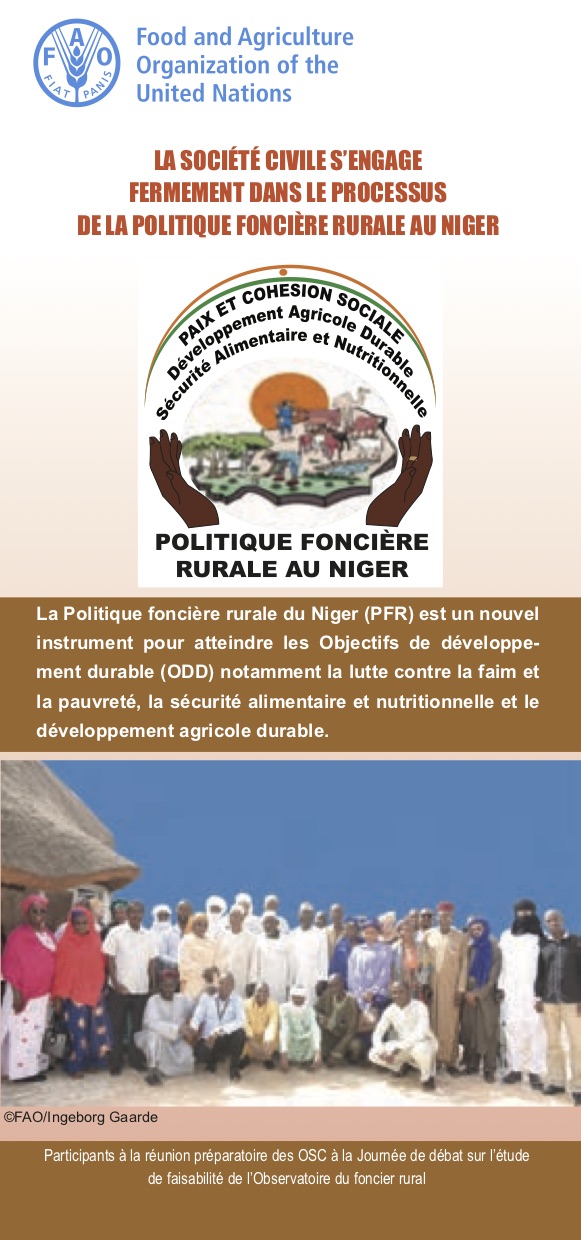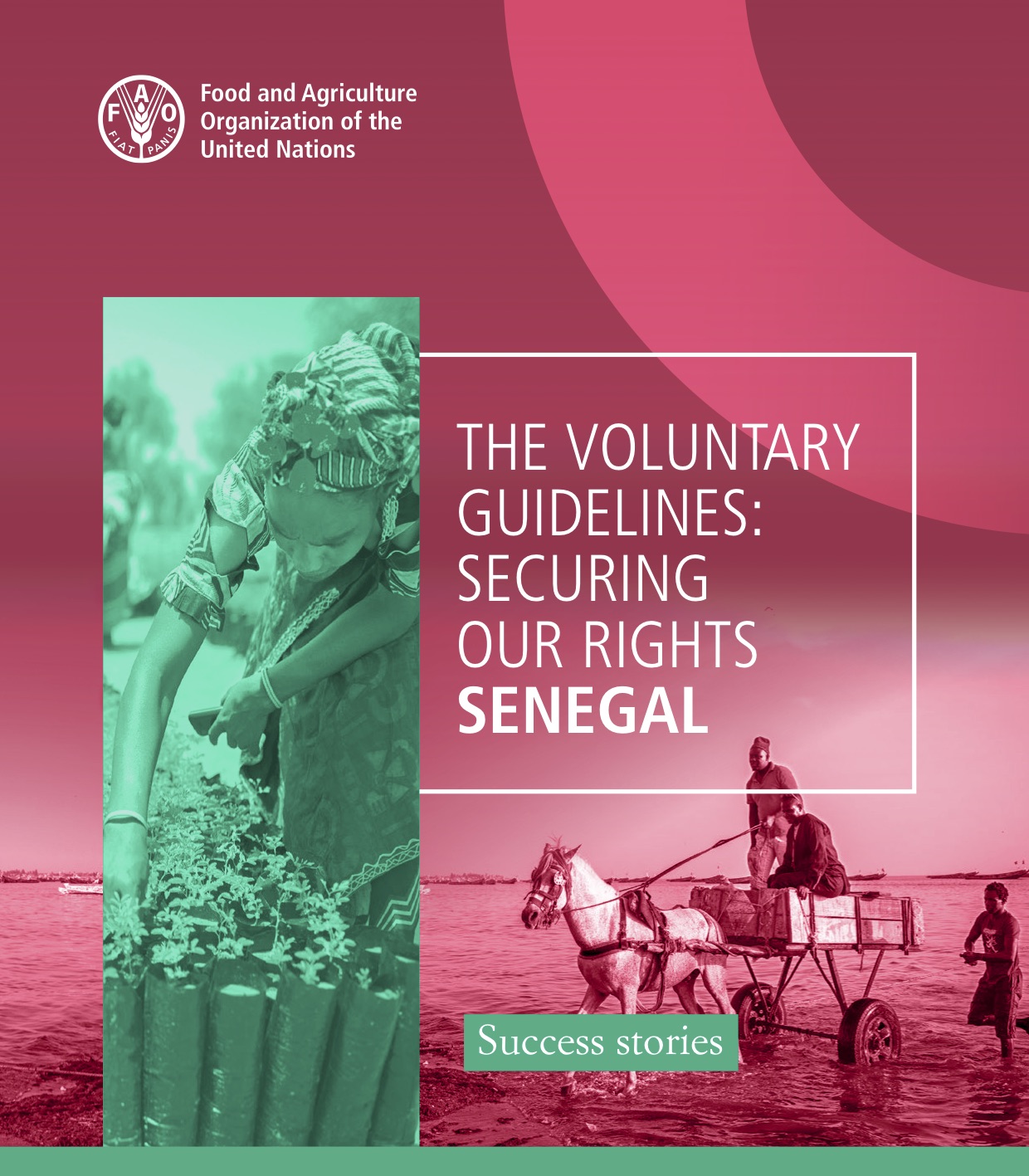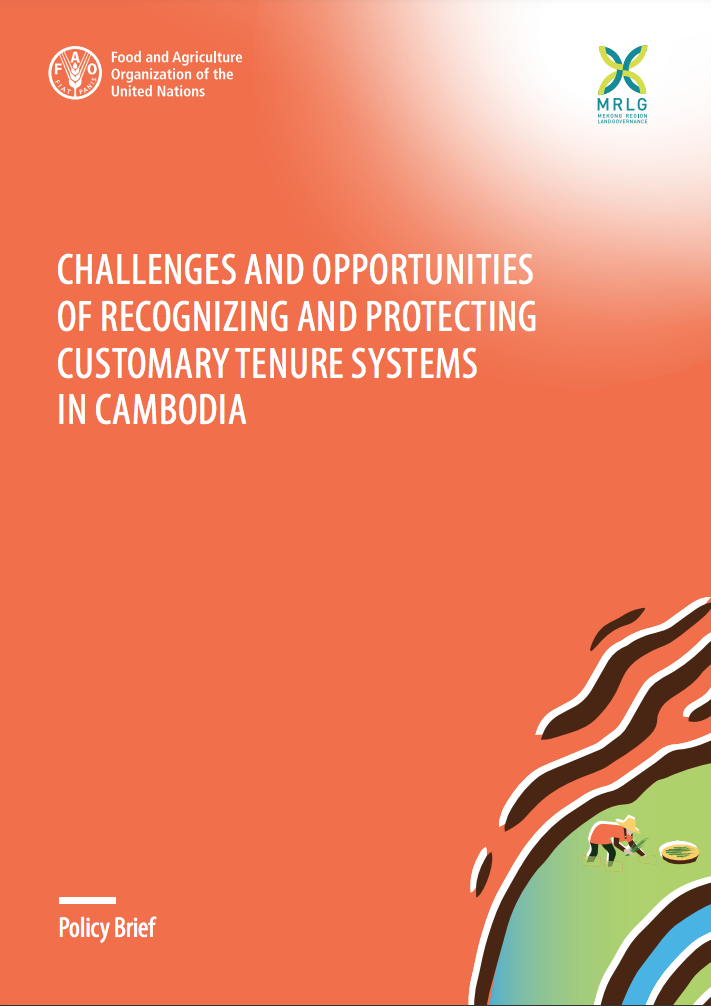Focal point
Location
The Food and Agriculture Organization of the United Nations leads international efforts to defeat hunger. Serving both developed and developing countries, FAO acts as a neutral forum where all nations meet as equals to negotiate agreements and debate policy. FAO is also a source of knowledge and information. We help developing countries and countries in transition modernize and improve agriculture, forestry and fisheries practices and ensure good nutrition for all. Since our founding in 1945, we have focused special attention on developing rural areas, home to 70 percent of the world's poor and hungry people.
Members:
Resources
Displaying 71 - 75 of 5074La société civile s’engage fermement dans le processus de la politique foncière rurale au Niger
Le dépliant rapelle la contribution des organisations de la société civile dans le processus d'élaboration de la politique foncière rurale au Niger et leur rôle dans la mobilisation des acteurs, le partenariat créé dans une approche participative et inclusive
La mise en place des comités de transhumance au Niger - Une démarche inédite et réussie en matière de dialogue multi-acteurs pour améliorer la gouvernance des terres pastorales
Au Niger comme dans tous les pays du Sahel, le pastoralisme fait face à des défis majeurs. La transhumance transfrontalière – pratique séculaire caractérisant le pastoralisme dans toute l’Afrique au sud du Sahara et dont les bienfaits ne sont plus à démontrer – est dangereusement menacée.
The Voluntary Guidelines: Securing our rights - Senegal
The guide will serve as documentation of the lessons learnt from the experiences of making use of the VGGT and in Senegal. As stakeholders from countries, such as Guinea, Mali and Mauritania seek inspiration from Senegal to improve governance of tenure in their own country context, this document will be an important source of inspiration. The document will also be a reference for different Donors and Partners interested in tenure governance in Senegal.
Measuring Individuals’ Rights to Land: An Integrated Approach to Data Collection for SDG Indicators 1.4.2 and 5.a.1
Land is a key economic resource inextricably linked to access to, use of and control over other economic and productive resources. Recognition of this, and the increasing stress on land from the world’s growing population and changing climate, has driven demand for strengthening tenure security for all. This has created the need for a core set of land indicators that have national application and global comparability, which culminated in the inclusion of indicators 1.4.2 and 5.a.1 in the Sustainable Development Goals (SDGs) agenda.
Challenges and opportunities of recognizing and protecting customary tenure systems in Cambodia
This policy brief was developed in order to enable a meaningful engagement and policy dialogue with government institutions and other relevant stakeholders about challenges and opportunities related to recognizing customary tenure in Cambodia.











